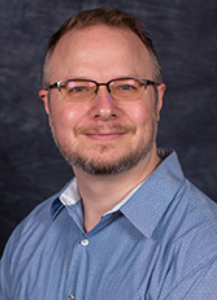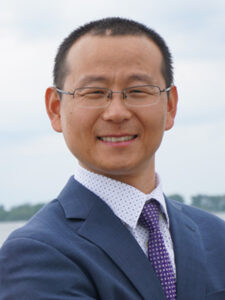Research Development Office
VISION: Empower research excellence.
MISSION: Deliver proactive and responsive research and proposal development support and services.
- Purpose: Empowering the Texas A&M University System’s research community, we specialize in crafting robust proposal packages for funding agencies, offering expert support to faculty and researchers to drive impactful research initiatives.
- Stakeholders: We are dedicated to serving the faculty and researchers within the Texas A&M University System, fostering collaboration with other Research Development Offices, and believing in the strength of unity: ‘Better Together.’
- Service: We are committed to serving our stakeholders by streamlining their tasks and reclaiming their time through meticulous execution, even of the most routine duties. Our service is distinguished by our unique expertise, knowledge, and adaptability, ensuring efficiency in all endeavors.
SERVICES PROVIDED:
- Checklists: Tailored checklists outlining agency-specific guidelines and requirements.
- Resource Development: Creation of agency-specific outlines, templates, and supplementary resources.
- Strategic Proposal Review: Insightful feedback from a reviewer’s perspective, ensuring narrative clarity, vision communication, and compliance with agency criteria.
- Administrative Document Management: Collection, editing, and formatting of supplementary and senior personnel documents in collaboration with the Research Administration.
- Language Editing and Proofreading: Comprehensive language editing and proofreading to ensure consistency, clarity, coherence, and correct grammar/spelling.
- Graphic Design Support: Professional graphic design services to visually enhance proposals and effectively communicate key concepts.
- Workshops, Webinars, and Events: Facilitation of collaborative ideation and proposal development through strategic events, webinars, and workshops.
- Funding Landscape Updates: Regular dissemination of funding landscape updates via a comprehensive database and newsletters.
- Stakeholder Engagement: Facilitation of stakeholder engagement through Communities of Practice (CoP) sessions, fostering collaboration and knowledge-sharing across the System.
Research Development Team

Sharmila Pathikonda, Ph.D.
Research Development Director
Email
Dr. Sharmila Pathikonda currently holds the position of Associate Vice Chancellor and Director of Research Development at the Office of Research in The Texas A&M University System, overseeing a network of 11 universities and 8 state agencies. In this pivotal role, she spearheads large strategic initiatives, fosters collaborative research endeavors, and enhances the overall research enterprise across the system.
In her current role, Dr. Pathikonda’s expertise in STEM fields proves invaluable, providing specialist scientific support for federal grant proposals spanning diverse areas such as cancer biology, climate science, energy innovation, and nuclear engineering. Her passion for science, coupled with robust quantitative training has propelled her success in research development.
Dr. Sharmila Pathikonda holds a diverse and comprehensive educational background. She earned her Bachelor of Science degree with majors in Botany, Microbiology, and Chemistry, as well as her Master of Science degree in Biochemistry, both from Bangalore University in India. Her academic journey continued with a Ph.D. in Environmental Biology from the University of Louisiana, Lafayette, where her research focused on understanding the ecological and physiological responses of freshwater marsh plants to salinity stress.
Following the completion of her doctoral studies, Dr. Pathikonda pursued postdoctoral research, delving into Hierarchical Bayesian statistical modeling of plant functional traits. This interdisciplinary work took her to the University of Wyoming and later to Arizona State University, where she expanded her expertise in mathematical modeling and its application to understanding the impacts of climate change on tree species distributions.
With over 13 years of experience in research, education, and administration, Dr. Pathikonda takes pride in her role as a champion for early-stage researchers. In her capacity as the Director of Research Development, Dr. Pathikonda is responsible for guiding the development of core ideas and concepts forming the strategic foundations of major engineering and scientific research proposals. This includes facilitating multi-institutional research and educational partnerships, curriculum initiatives, and support structures. Additionally, she plays a key role in developing and working on proposals seeking grant funding from federal and state research agencies, private foundations, or industry. Dr. Pathikonda is also actively engaged in serving on proposal review panels for the National Science Foundation (NSF).
Dr. Pathikonda envisions enhancing the research enterprise within the Texas A&M University System, which boasts a research expenditure exceeding $1.2 billion. Her goal is to provide high-quality support to researchers, contribute to strategic research development efforts, and elevate the overall research portfolio. Dr. Pathikonda aspires to create a conducive environment for researchers, ensuring a positive trajectory in research expenditure, and advancing the System’s ambitious vision for research and education.

Jerry Shelton
Senior Research Development Officer / Graphics
Email
Jerry Shelton received a bachelor’s degree in speech communication from Lubbock Christian University. Jerry garnered invaluable experience at various Advertising Agencies, where he specialized in graphic design. He served his alma mater, Lubbock Christian University, in two distinct roles: Director of Admissions and Director of Marketing. Other experience includes serving United Supermarkets as a graphic designer prior to being promoted to Director of Marketing.
Jerry began his association with Texas A&M in 2020 as a freelance graphic designer for TEES, swiftly transitioning to a full-time role in 2021. Since 2022, He has been part of The Texas A&M University System, contributing his skills and experience to the Research Development Office.

Jason Foley
Research Development Officer
Email
In my conviction, scientific research stands as the pinnacle of human endeavors- unraveling the intricacies of the natural world, propelling technological advancement, and elevating the overall quality of life. I find immense pleasure in contributing to this noble pursuit as I work alongside exceptional researchers within The Texas A&M University System, assisting in the transformation of their visionary ideas into awards.

Sindhu Jose
Research Development Officer
Email
Sindhu Jose joined Texas A&M Engineering Experiment Station Engineering (TEES) Research Development Services in February 2019. Her responsibilities include reviewing research proposals to federal agencies based on agency mission and review criteria. She edits the proposal narratives for accuracy, consistency, and coherence, outlining and interpreting the funding opportunity announcements, developing resources for the principal investigators, and facilitating the organization’s research development initiatives.
Jose has substantial knowledge and expertise in the proposal preparation guidelines and policy requirements of the National Science Foundation, National Institutes of Health, Department of Energy, Department of Defense, and the National Aeronautics and Space Administration. She received her Doctor of Philosophy in English from The English and Foreign Languages University – Hyderabad, India. Jose also holds the Poynter-ACES Certificate in Editing. As a strong language professional skilled in research, research development, and proposal development, she is excited to work with TEES researchers.

Hui Wang
Research Development Officer
Email
Before joining the Texas A&M Engineering Experiment Station, Hui Wang was a postdoctoral researcher in the Department of Industrial and Systems Engineering at Texas A&M University. He received his doctoral degree in industrial engineering from Texas Tech University and his master’s degree in mechatronic engineering from the University of Science and Technology of China. Before his doctoral study, he worked as a mechanical engineer for over five years at the Chinese Academy of Sciences.
Research Development Newsletter
TAMUS Research Development proudly presents its monthly newsletter—a comprehensive digest spotlighting the latest developments within the Texas A&M University System. Dive into the strategic landscape of research opportunities, stay attuned to upcoming events, and gain valuable insights into our collaborations with federal sponsors. This curated resource is your gateway to a wealth of information strategically tailored to keep you abreast of the pulse of innovation and progress within our academic ecosystem.
Subscribe today and elevate your awareness in the tapestry of academic research.
Highlighted Funding Opportunity
Summary: The Texas Semiconductor Innovation Fund (TSIF) is a new incentive program to encourage the continued leadership of Texas in semiconductor research, design and manufacturing. The TSIF was established in June 2023 when Governor Abbott signed into law the Texas CHIPS Act (House Bill 5174) which established the TSIF as well as the Texas Semiconductor Innovation Consortium (TSIC). The Texas legislature appropriated $698.3 million to the TSIF.
- Category I, Capacity Resources: production computational resources maximizing the capacity provided to support the broad range of computation, data analytics and AI needs in S&E research; and
- Category II, Innovative Prototypes/Testbeds: innovative forward-looking capabilities deploying novel technologies, architectures, usage modes, etc., and exploring new target applications, methods, and paradigms.
Abstract: The Department of Defense (DoD) Office of the Under Secretary of Defense for Research and Engineering (OUSD(R&E)) seeks innovative applications on mechanisms to implement and research the effectiveness of STEM education, outreach, and/or workforce initiative programs.
In response to this NFO, the Department intends to release amendments and solicitations, such as Industry Days, Opportunity Days, etc., detailing funding opportunities through award(s) in STEM activities. These activities include, but are not limited to: (1) STEM Education and Outreach (2) Support for STEM Education at Two-Year Institutions/Community Colleges (2YI/CCs) (3) Manufacturing Engineering Education Program (4) Education and Workforce Development aligned to the DoD Critical Technology Areas (5) Enhanced Civics Education (6) STEM Scholarship Programs (7) Strategic Partnerships (8) Program Evaluations and Assessments (9) Data Analytics and Visualizations (10) Activities aligned to the DoD STEM Strategic Plan (11) Other NDEP Congressional Initiatives and Programs.
In accordance with 10 USC §2192, Improvement of education in technical fields: general authority regarding education in science, technology, engineering, and mathematics, OUSD(R&E) is seeking a broad range of programs to support the DoD STEM mission to “attract, inspire, and develop exceptional STEM talent across the education continuum to enrich the current and future DoD workforce to meet defense technological challenges.” The goal of any proposed effort must provide solutions that will establish and maintain a STEM talent pool with an aptitude for innovation, diversity of thought, and the technical agility to sustain the Department’s competitive edge.
Deadline: 08 Feb 2028
As previously stated, one of the key missions of the Office of Fossil Energy is to, “minimize the environmental impacts of fossil fuels while working towards net-zero emissions.” To accomplish this mission, it is imperative that FECM provide outreach and education to many stakeholders, including the general public in order to allow them to make educated choices about energy. Towards this end, FECM seeks to partner with organizations with similar goals to help improve understanding and develop cooperative action on CDRs by reaching out to additional international and national organizations to conduct a series of co-related tasks that mutually serve the mission of the public as well as FECM.
Funding Links
Research Development Communities of Practice
TAMUS Research Development Communities of Practice is a collaborative group for individuals within the system who share common interests in research development. The primary focus is on facilitating knowledge sharing, collaboration, and professional development among members. Through the exchange of expertise, best practices, and insights, the community enhances the collective research capabilities of system members. It fosters a sense of community and organizes events for networking and learning. Additionally, it serves as a communication hub, keeping members informed.
The group meets on the last Friday of each month at noon CST.
System Research Development Offices
Links to the outstanding Research Development Offices within the Texas A&M University System.

















